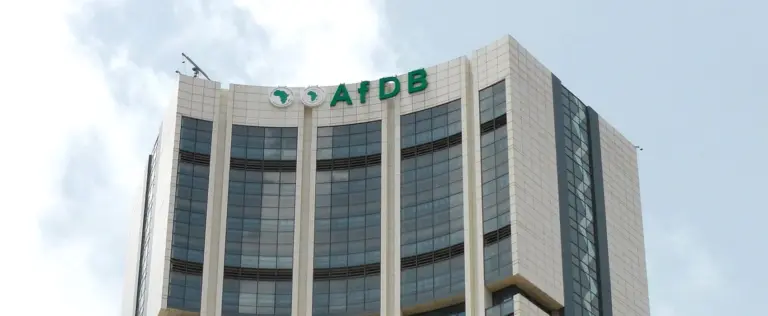Abuja, Nigeria – The African Development Bank (AfDB) has forecast 3.2% GDP growth for Nigeria in 2025, moderating slightly from 3.4% in 2024, according to its newly released 2025 Country Focus Report (CFR). Titled “Making Nigeria’s Capital Work Better for Its Development,” the report underscores the need for smarter capital mobilization to overcome structural bottlenecks and global headwinds.
Key Insights from the Report
1. Growth Outlook: Cautious Optimism
2025 GDP: 3.2% (vs. 3.4% in 2024)
2026 GDP: 3.1%
Drivers: Continued reforms (subsidy removal, FX unification, tax policies) tempered by inflation, low productivity, and oil volatility.
2. The $31.5B Funding Gap
Nigeria faces an annual $31.5 billion development financing shortfall. The report urges:
✔ Tax Reforms: Expand non-oil revenue; tackle low tax-to-GDP ratio (6-8%, among Africa’s lowest).
✔ Formalizing the Informal Sector: 80% of Nigeria’s economy operates informally.
✔ FX Management: Market-driven rates must pair with strong institutions to curb speculation.
3. Inflation & Productivity Crisis
-
Inflation (33.8% as of May 2025) hits SMEs hardest.
-
Solution: “Productivity-led deflation”—boost agri/tech output rather than rely on monetary tightening.
4. Human & Natural Capital
Nigeria’s youth bulge and natural resources remain underutilized. The AfDB calls for:
Skills-to-jobs pipelines (tech/vocational training).
Green industrialization (leveraging gas, solar, critical minerals).
What Stakeholders Are Saying
Dr. Abdul Kamara (AfDB Nigeria DG):
“Nigeria’s bold reforms are commendable, but capital must work smarter—financial, human, and natural assets aligned.”
Dr. Jacob Oduor (AfDB Lead Economist):
“FX reforms alone won’t fix Nigeria. Credible institutions and fiscal discipline are non-negotiable.”
NESG’s Dr. Joseph Ogebe:
“Growth must be ‘with depth’—prioritize value chains over debt-fueled expansion.”
Reforms vs. Reality: The Road Ahead
Progress: Tax reforms, subsidy cuts, and FX liberalization are steps in the right direction.
Risks: Oil production slumps (~1.2M bpd), food inflation (40%+), and debt servicing costs (45% of revenue) threaten stability.
AfDB’s Blueprint:
-
Boost non-oil exports (agro-processing, tech services).
-
Overhaul public finance (cut wasteful spending, digitize revenue collection).
-
Partner with private sector for infra gaps (power, logistics).
Bottom Line
While Nigeria’s reforms have averted collapse, the AfDB warns that half-measures won’t suffice. For growth to top 4%+, the country must transform capital efficiency—turning its youth, resources, and diaspora wealth into engines of structural change.


